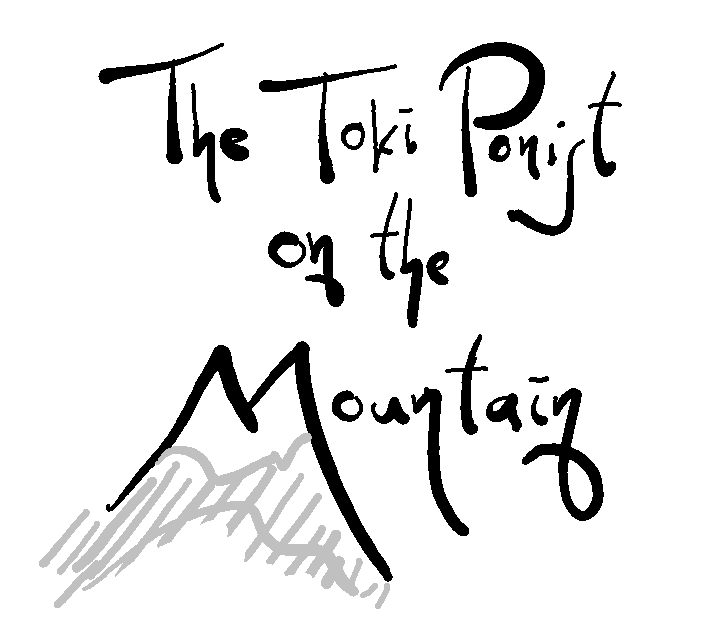toki li kiwen la, o toki ko!
If talking is hard, speak softly. — Toki Ponist Pu
July 2021
These are the words as recovered from the awoken well:
lon ni la jan mute li toki insa sewi.
jan Kulusu li toi e ni: jan ni li toki insa sewi tan seme?
jan Sipi li toki e ni: ona li pilin e kon sewi.
jan Kulusu li toki e ni:
waso li mu lon tenpo suno sin la, sina sama lon ma tomo wawa.
sina toki musi e musi pi kama lape lon ma kasi poka jan ala.
Here follows a relaxed translation:
Kuluse meets Tipi at a temple. He sees people praying. Kuluse asks: “Why does that man pray?” Tipi answers: “Because he believes in God.” Kulusu says: “I pray because God wants me to.” Tipi says: “No. You pray because you are an idiot. You are like a crowing cockadoodle in a busy city and you sing lullabies in an empty forest at night.”
Associative musings:
A ritual is a conscious integration of the outside world, through the means of a certain action or behavior, with the interior world of the mind and ideally also the perspectives of systems and interpersonal relationships. Where language merges these world in a linear, structured form. Rituals do this through the use of habitual symbols. Rituals may involve language and images but also add a kinesthetic aspect for added effect.
Rituals set themselves apart from what we already do all day: habits and traditions. Habits are recurring actions that are mostly unconscious and if we are conscious about them, we treat them as matter of fact patterns in our lives. Traditions are symbolic actions which are mostly fueled and glued to a person by an outward pressure to uphold them and invariably do no longer hold the same integrative power as they used to. Religious rituals often become traditions because the action is deemed more important to the group than the integrative power that is potentially behind them.
Read a newer koan (In the present I feel pain. About the past I feel suffering. About the future I feel fear.)
Read an older koan (I think about a possible world. I experience the probable world/existence. I want a desired world.)
